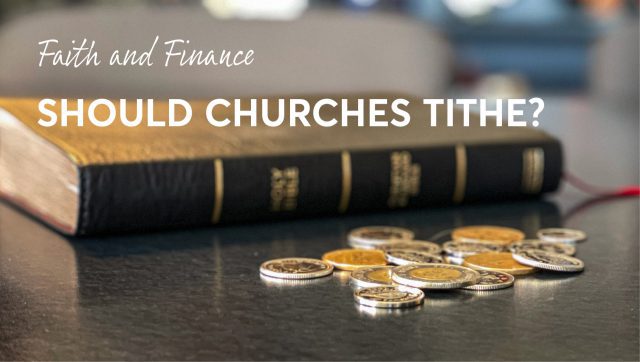
Giving generously is a beautiful act of worship. Tithing reorients our perspective away from ourselves to the One who gives us life. It helps us remember that all the stuff in our lives — our wealth, talents, health, time, and the things we surround ourselves with — ultimately belongs to God.
As Christians, we are urged to give cheerfully (2 Corinthians 9:7) and with abandon (Matthew 26:6-13). But what about the church? Should a church set aside a portion of their budget to give outside of its own internal ministries, programs, and congregants?
In 2 Corinthians 8:1-7, Paul praises the Macedonian church for their radical generosity. Though individuals in the church were themselves poor, this didn’t stop the church from giving to other poor Christians in other parts of the world: “For I testify that they gave as much as they were able, and even beyond their ability. Entirely on their own, they urgently pleaded with us for the privilege of sharing in this service to the Lord’s people.” Paul goes on to encourage the church in Corinth to give as enthusiastically as the Macedonian church.
The church in Macedonia could easily have decided their own needs took priority; there were plenty of people in their own congregation that could have used ongoing provision and support. But as we just read, “they urgently pleaded” to help others, to look outside themselves and serve those in need.
Paul says this kind of giving is not a command, but it is an expression of grace-filled, earnest love for the Lord (2 Corinthians 8:8). In Scripture, there are no set rules for churches on where to give or how much to give. But we gather from this passage and others (1 Timothy 6:17-19, Matthew 6:1-3, Acts 2:44-46) that giving with humility and sincerity enriches our spiritual lives and models Kingdom values to others.
Churches whose leadership makes giving a priority in its budget — to missions, outreach, or other relief organizations — model financial stewardship to its members. Giving as a church body demonstrates the reality that everything belongs to God, even the money the church collects. Resources are to be held with open hands, exemplifying sacrificial giving to those belonging to the church. Alternatively, when churches cease to give in times of sparsity, it sends a message to its attendees to handle their own budgets in a similar way. Leadership, at its essence, means being an example for others to follow. If a church asks its individual attendees to give from their personal budgets to support the mission of the church, in a similar way church leadership should lead by example: to give sacrificially from its budget to support the larger mission to go and make disciples of all nations. The church is not the mission, but the mission includes the church.
Let’s not forget that most churches exist because they began as missions outreaches — God called a group of people together to commit to give sacrificially of their time and resources so that the gospel could be made known in a neighbourhood or community.
And God’s call continues! When churches can look beyond themselves to take part in what the Holy Spirit is doing elsewhere — across the street, in other parts of our country and around the world — it’s such a gift. It allows congregations to feel and experience being part of something bigger, that they can have an impact.
Supporting their denomination is another way churches can take part in what the Holy Spirit is doing elsewhere. By giving denominationally, churches can partner together in God’s work within their larger church family. Giving in this way goes beyond supporting “the institution” and the benefits they receive — such as shared costs, insurance, benefits and administrative support —but also supports the broader church family. When churches participate in denominational giving, they support and help one another through trials, join in mission together and collectively celebrate God at work in and amongst their broader church family.
So how does a church decide where to give? It all comes down to what is important to its congregation. All church budgets are value statements. Is the church passionate about missions, looking to spread the gospel beyond its walls? Is the church looking to support other churches in their times of trial and celebration? These are important questions for all church members to ask; if a church only financially supports its own ministries, it can miss out on receiving the blessing of giving, of partnering with others in doing God’s work across our communities, country and world. Because, as Paul writes of the Macedonians, what a privilege it is to share in service to the Lord’s people!
